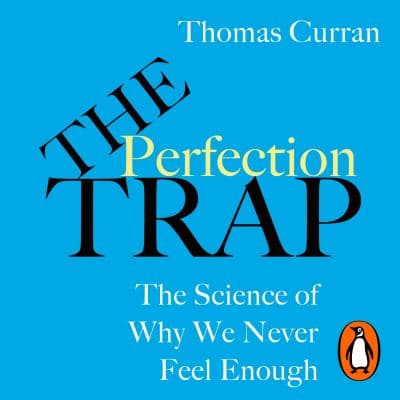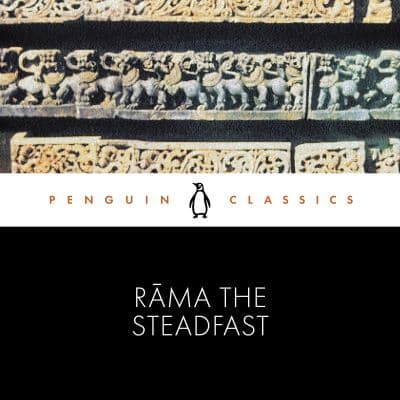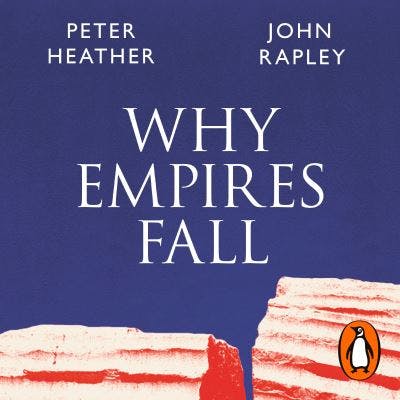Sid Sagar
- History - World
Read by: Sid Sagar
Duration: 15 hrs 43 mins
In August 1765 the East India Company defeated the young Mughal emperor and forced him to establish a new administration in his richest provinces. Run by English merchants who collected taxes using a ruthless private army, this new regime saw the East India Company transform itself from an international trading corporation into something much more unusual: an aggressive colonial power in the guise of a multinational business.
William Dalrymple tells the remarkable story of the East India Company as it has never been told before, unfolding a timely cautionary tale of the first global corporate power.
- Detective & Mystery Stories
Read by: Sid Sagar
Duration: 12 hrs 25 mins
Dear Reader - enclosed are all the documents you need to solve a case. It starts with the arrival of two mysterious newcomers to the small town of Lockwood, and ends with a tragic death. Someone has already been convicted of this brutal murder and is currently in prison, but we suspect they are innocent. What's more, we believe far darker secrets have yet to be revealed. Throughout the Fairway Players' staging of All My Sons and the charity appeal for little Poppy Reswick's life-saving medical treatment, the murderer hid in plain sight. Yet we believe they gave themselves away. In writing. The evidence is all here, between the lines, waiting to be discovered. Can you uncover the truth?
- Science - General
Read by: Sid Sagar
Duration: 9 hrs 9 mins
Our universe has multiple origin stories, from religious creation myths to the Big Bang of scientists. But if we leave those behind and start from nothing - no matter, no cosmos, not even empty space - could we create a universe using only maths?
In this new mathematical origin story, mathematician and award-winning novelist Manil Suri creates a natural progression of ideas needed to design our world, starting with numbers and continuing through geometry, algebra, and beyond.
With evocative and engaging examples ranging from multidimensional crochet to the Mona Lisa's asymmetrical smile, as well as ingenious storytelling that helps illuminate complex concepts like infinity and relativity, The Big Bang of Numbers charts a playful, inventive course to existence.
- 20th Century Classics
Read by: Sid Sagar
Duration: 10 hrs
Burmese Days describes corruption and imperial bigotry in a society where, 'after all, natives were natives'.
When Flory, a white timber merchant, befriends Indian Dr Veraswami, he defies this orthodoxy. The doctor is in danger: U Po Kyin, a corrupt magistrate, is plotting his downfall. The only thing that can save him is membership of the all-white Club, and Flory can help. Flory's life is changed further by the arrival of beautiful Elizabeth Lackersteen from Paris, who offers an escape from loneliness and the 'lie' of colonial life.
- Science - General
Read by: Sid Sagar
Duration: 15 hrs 30 mins
We are told that modern science was invented in Europe, the product of great minds like Nicolaus Copernicus, Isaac Newton, Charles Darwin and Albert Einstein. But this is wrong. Science is not, and has never been, a uniquely European endeavour.
Copernicus relied on mathematical techniques borrowed from Arabic and Persian texts. When Newton set out the laws of motion, he relied on astronomical observations made in Asia and Africa. When Darwin was writing On the Origin of Species, he consulted a sixteenth-century Chinese encyclopaedia. And when Einstein was studying quantum mechanics, he was inspired by the Bengali physicist, Satyendra Nath Bose. Horizons pushes beyond Europe, exploring the ways in which scientists from Africa, America, Asia and the Pacific fit into the history of science, and arguing that it is best understood as a story of global cultural exchange.
Challenging both the existing narrative and our perceptions of revered individuals, above all this is a celebration of the work of scientists neglected by history. Among many others, we meet Graman Kwasi, the seventeenth-century African botanist who discovered a new cure for malaria, Hantaro Nagaoka, the nineteenth-century Japanese scientist who first described the structure of the atom, and Zhao Zhongyao, the twentieth-century Chinese physicist who discovered antimatter (but whose American colleague received the Nobel prize).
Scientists today are quick to recognise the international nature of their work. In this ambitious and revisionist history, James Poskett reveals that this tradition goes back much further than we think. - Historical Fiction
Read by: Sid Sagar
Duration: 16 hrs 8 mins
Raised in a Greek legion, Phaidros has been taught to follow his commander's orders at all costs. But when he rescues a baby from a fire at Thebes' palace, he defies those orders and keeps the blue-eyed boy's existence a secret.
Years later, after a strange encounter that led to the death of his battalion, Phaidros has become a training master for young soldiers. He struggles with panic attacks and flashbacks, and he is not alone: all around him, his fellow veterans are losing their minds.
Phaidros has also become entangled with the search for Thebes' lost young crown prince - a search that leads him to a blue-eyed witch named Dionysus, whose guidance is as wise as the events that surround him are strange. In Dionysus's company, Phaidros witnesses sudden outbursts of riots and unrest, and everywhere Dionysus goes, rumors follow about a new god…
- History - General
Read by: Sid Sagar
Duration: 8 hrs 7 mins
In 1797 the 32-gun Royal Navy frigate HMS Hermione was serving in the Caribbean, at the forefront of Britain's bitter sea war against Spain and Revolutionary France. Its commander, Captain Hugh Pigot ruled through terror, pushing his men beyond the limits of human endurance.
On the night of 21 September 1797, the crew rebelled, slaughtering Pigot and nine of his officers in the bloodiest mutiny in the history of the Royal Navy. Handing the ship over to the Spanish, the crew fled, sparking a manhunt that would last a decade.
Drawing on letters, reports, ships' logs, and memoirs of the period, as well as previously unpublished Spanish sources, Angus Konstam intertwines extensive research with a fast-paced but balanced account to create a fascinating retelling of one of the most notorious events in the history of the Royal Navy, and its extraordinary, wide-ranging aftermath.
- Psychology & Sociology
Read by: Sid Sagar
Duration: 7 hrs 54 mins
When did 'good enough' become the same as 'perfect'? Why does society increasingly promote ideals that are completely unrealistic? And what does it mean for all of us that perfectionism is on the rise? In The Perfection Trap, you'll discover what's really driving the rise in perfectionism, its impact on how we learn, work, parent and relate to ourselves and each other.
From the personal to the impact on the economy, grounded in over a decade of research and filled with real stories, this timely book reveals how our quest for perfection impacts our health and mental well-being and promises practical techniques and policy proposals to help us break free of the perfection trap.
- Classic Fiction
Read by: Sid Sagar
Duration: 17 hrs 21 mins
Warrior-prince Rama is about to be crowned Young King, when he hears the devastating news that his father, King of Ayodhya, has been tricked into banishing him to the forest. His devoted wife Sita insists on accompanying him in exile, but the evil ten-headed lord Ravana has fallen deeply in love with the beautiful princess and steals her away. Aided by Hanuman, mighty captain of the monkeys, Rama sets out across the world to find her and destroy Ravana in a deadly battle. Rama the Steadfast was composed in the oral tradition in about the fifth century BC and has been retold over the generations ever since. With its fantastical characters ranging from monsters to apes, a very human hero and its profound moral purpose, it is one of the greatest of all Indian tales.
- Contemporary Fiction
Read by: Sid Sagar
Duration: 11 hrs 48 mins
In the wake of an insignificant battle between two long-forgotten kingdoms in fourteenth-century southern India, a nine-year-old girl has a divine encounter that will change the course of history. After witnessing the death of her mother, the grief-stricken Pampa Kampana becomes a vessel for a goddess, who tells her that she will be instrumental in the rise of a great city called Bisnaga - literally 'victory city' - the wonder of the world.
Over the next two hundred and fifty years, Pampa Kampana's life becomes deeply interwoven with Bisnaga's as she attempts to make good on the task that the goddess set for her: to give women equal agency in a patriarchal world. But all stories have a way of getting away from their creator, and as years pass, rulers come and go, battles are won and lost, and allegiances shift, Bisnaga is no exception.
- History - Ancient
Read by: Sid Sagar
Duration: 6 hrs 55 mins
Over the last three centuries, the West rose to dominate the planet. Then, suddenly, around the turn of the millennium, history reversed. Faced with economic stagnation and internal political division, the West has found itself in freefall. This is not the first time the global order has witnessed such a dramatic rise and fall. The Roman Empire followed a similar arc from dizzying power to disintegration - a fact that is more than a strange historical coincidence. In Why Empires Fall, historian Peter Heather and political economist John Rapley use this Roman past to think anew about the contemporary West, its state of crisis, and what paths we could take out of it.
In this exceptional, transformative intervention, Heather and Rapley explore the uncanny parallels - and productive differences - between the two cases, moving beyond the familiar tropes of invading barbarians and civilizational decay to learn new lessons from ancient history. From 399 to 1999, the life cycles of empires, they argue, sow the seeds of their inevitable destruction. The era of the West has reached its own end - so what comes next?
- Previous<
- Page1
- Next>










